Retro Replay Review
Gameplay
Tycoon City: New York places you in the heart of Manhattan with the task of constructing thriving commercial districts from the ground up. You begin in Greenwich Village, unlocking new neighborhoods one by one by meeting specific objectives—organizing parades, boosting citizen happiness, or outmaneuvering rival businesses. Each district presents unique challenges in zoning, budgeting, and customer satisfaction, keeping the core loop fresh and engaging.
(HEY YOU!! We hope you enjoy! We try not to run ads. So basically, this is a very expensive hobby running this site. Please consider joining us for updates, forums, and more. Network w/ us to make some cash or friends while retro gaming, and you can win some free retro games for posting. Okay, carry on 👍)
The “Build New York” mode offers a structured progression where each completed district unlocks the next. Along the way, you’ll balance competing metrics such as foot traffic, revenue, and resident contentment. Completing tasks like hosting cultural events or responding to seasonal demands adds strategic depth and requires careful resource allocation. Encountering rival developers who seek to undercut your prices or siphon off customers injects an element of competitive intrigue.
For those craving creative freedom, Sandbox mode opens the entire island immediately and lets you set your desired difficulty. With unlimited access to every neighborhood and landmark, you can experiment with diverse layouts, business mixes, and building placement without the pressure of scripted objectives. This mode is ideal for veterans who want to test experimental city designs or simply enjoy the sight of a fully realized Manhattan skyline.
The gameplay loop strikes a nice balance between challenge and creativity. Task-driven progression ensures a sense of accomplishment, while Sandbox mode encourages freeform experimentation. Whether you’re fine-tuning the layout of Fifth Avenue shops or orchestrating a grand opening for the Empire State Building, Tycoon City: New York delivers satisfying city-builder mechanics with a uniquely Manhattan flavor.
Graphics
Tycoon City: New York employs a vibrant isometric perspective, rendering Manhattan’s streets, skyscrapers, and iconography with stylized detail. While not pushing the boundaries of 3D realism, the game’s visual palette is crisp and colorful, making it easy to distinguish between various building types, zones, and transport networks at a glance.
Landmarks such as the Empire State Building, the Chrysler Building, and the Statue of Liberty are faithfully represented, complete with animated flourishes—blinking lights, waving flags, and crowds gathering at openings. These visual touches heighten immersion and provide an immediate sense of accomplishment when you finally place the skyline’s most famous structures in your custom cityscape.
The user interface is clean and intuitive, with tooltips and overlays that display essential data—like happiness ratings, commercial lease rates, and traffic density—without overwhelming the screen. Zooming and rotating the camera remains smooth even in dense urban areas, ensuring you can admire your architectural creations from multiple angles.
While some textures appear dated by modern standards, especially on residential blocks and paved surfaces, the overall art direction remains charming. The game’s visual style is consistent, and occasional dynamic events (such as fireworks during a parade) add visual variety that helps stave off monotony in longer sessions.
Story
Tycoon City: New York doesn’t rely on a traditional narrative or character-driven plot. Instead, the story emerges organically through your city’s development milestones. Each district you unlock tells a small chapter of your “rags-to-riches” tale, transforming neglected neighborhoods into bustling commercial hubs.
City events—such as holiday parades, street fairs, and corporate grand openings—act as narrative beats, punctuating the simulation with moments of celebration and tangible progress. Completing these events often unlocks new buildings, landmarks, or competitive advantages, giving a sense of forward momentum that drives players to the next challenge.
Rival developers function as story foils, occasionally sabotaging your efforts by undercutting rent prices or launching their own promotional campaigns. These skirmishes add a light narrative tension, framing your growth as part of a larger economic rivalry in the world’s most competitive city.
While there is no overarching character arc or plot twist, the emergent storytelling—built from your achievements, setbacks, and strategic decisions—provides plenty of personal investment. As you see the streets fill with satisfied shoppers and office workers, you’ll feel as though you’ve authored your own New York success story.
Overall Experience
Tycoon City: New York offers a compelling city-building experience with a uniquely Manhattan flavor. Its blend of structured progression and open-ended Sandbox mode caters to both newcomers and veteran tycoons. The satisfaction of watching each district spring to life—complete with buzzing shops, ringing taxis, and parade floats—creates a powerful sense of achievement.
The learning curve is approachable, with in-game tutorials and clearly defined objectives. At higher difficulty levels, however, the complexity ramps up as you juggle multiple districts simultaneously, manage traffic flow, and keep an eye on your cash reserves. This balance ensures both short-term fun and long-term strategic depth.
Despite its age, the game’s charm endures through distinctive visuals, iconic landmarks, and emergent mini-stories born from your own decisions. Minor graphical shortcomings do little to dampen the joy of sculpting your own Manhattan skyline or outsmarting rival developers.
Ultimately, Tycoon City: New York stands out as a city-builder that foregrounds commercial simulation and event-driven gameplay. Whether you’re here to follow the guided path through Build New York or unleash your creativity in Sandbox mode, you’ll find a rich, engaging tycoon experience that captures the hustle and bustle of the Big Apple.
 Retro Replay Retro Replay gaming reviews, news, emulation, geek stuff and more!
Retro Replay Retro Replay gaming reviews, news, emulation, geek stuff and more!
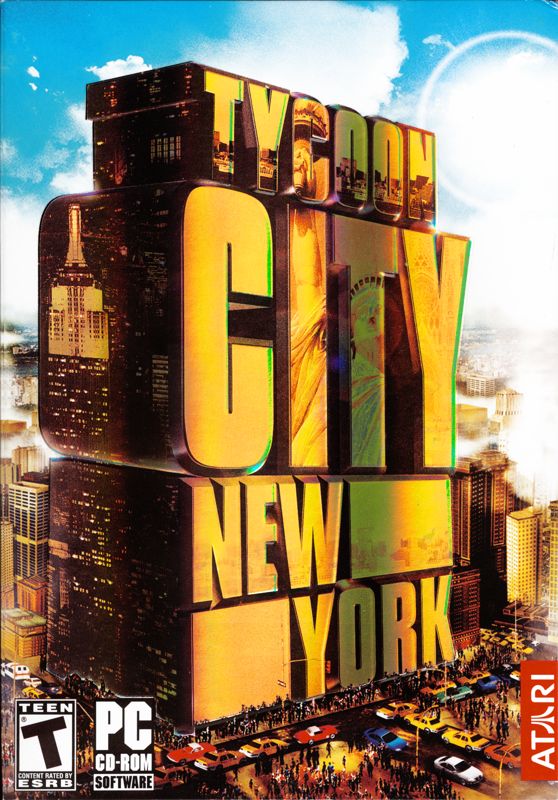
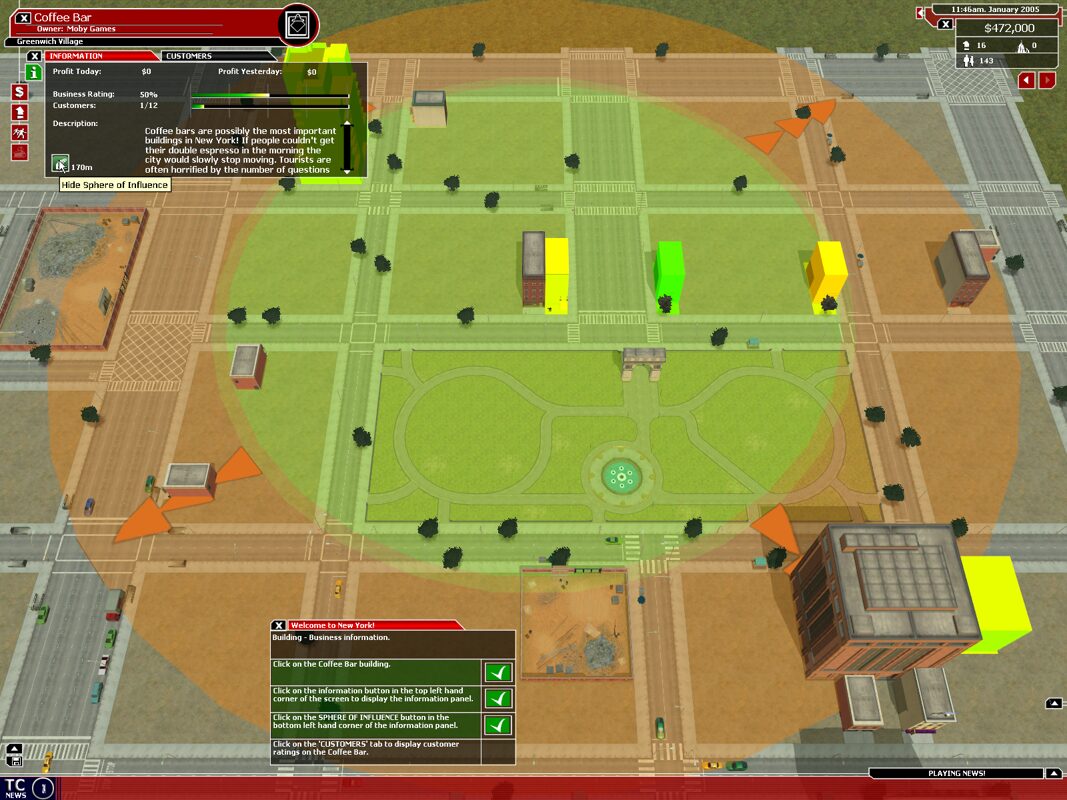
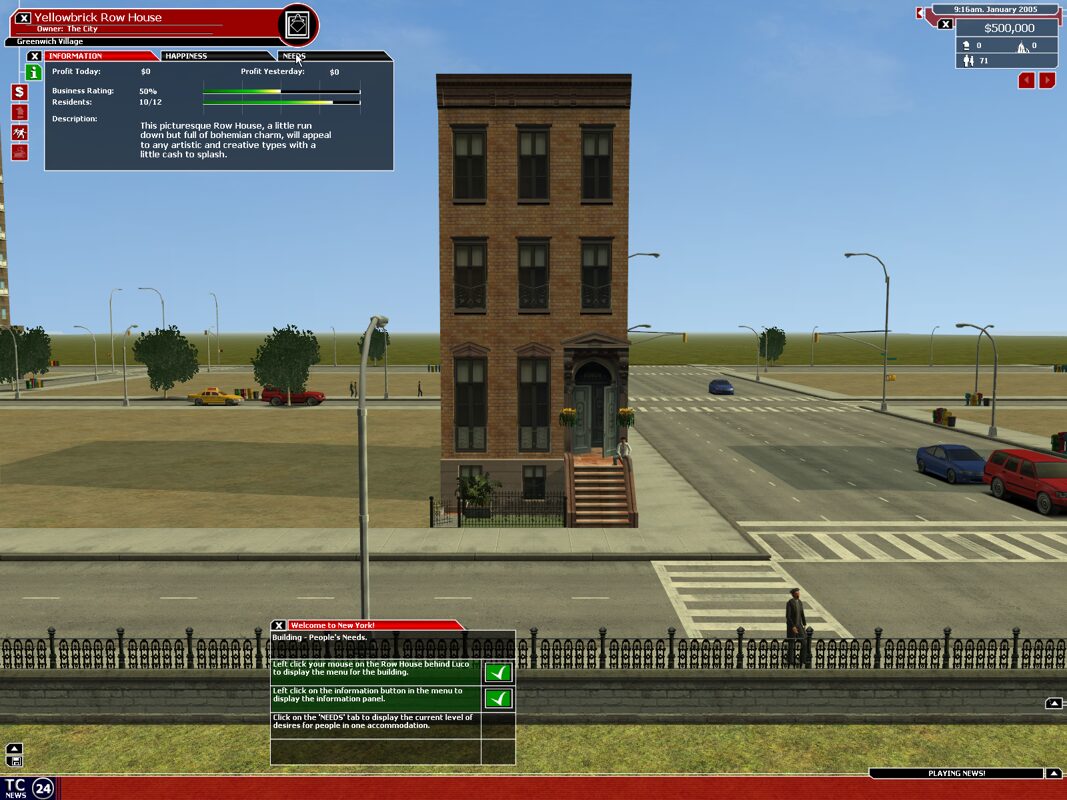
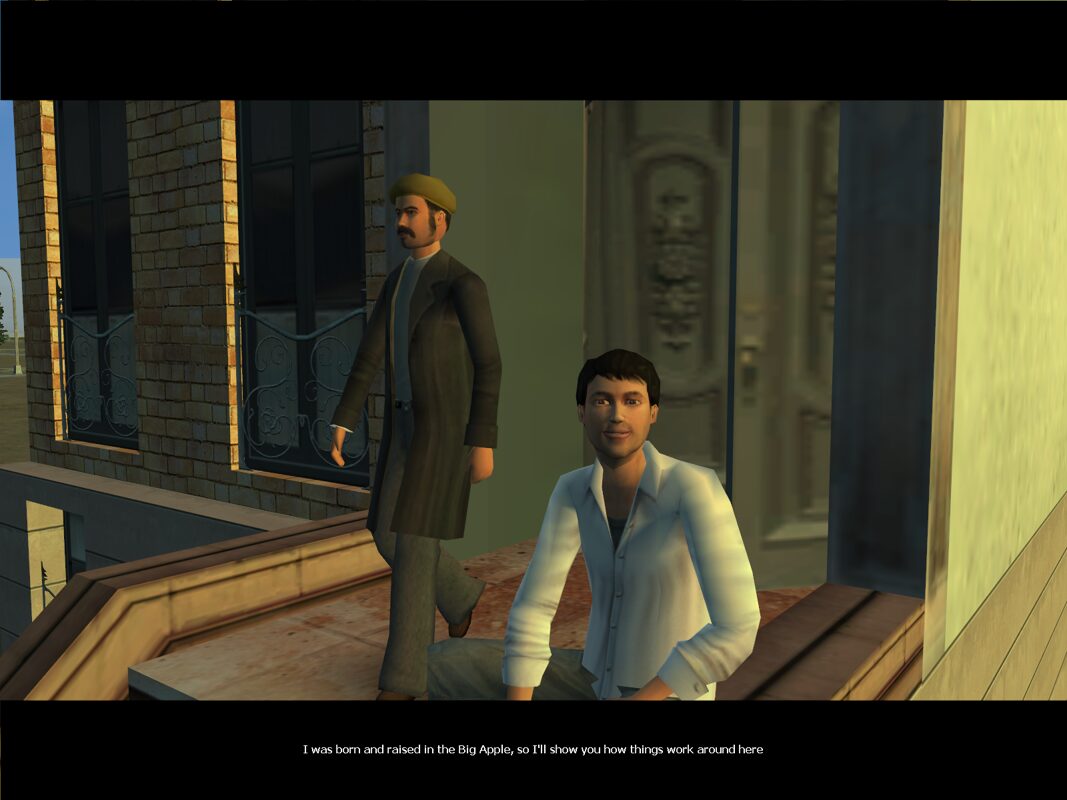
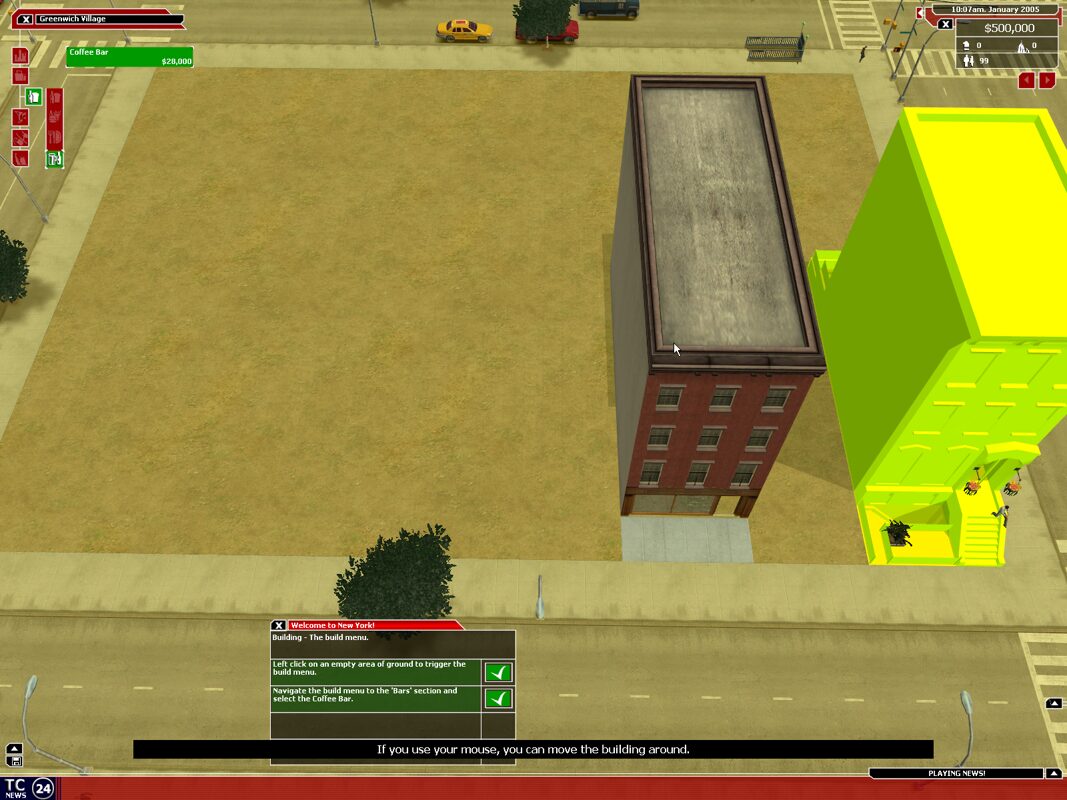
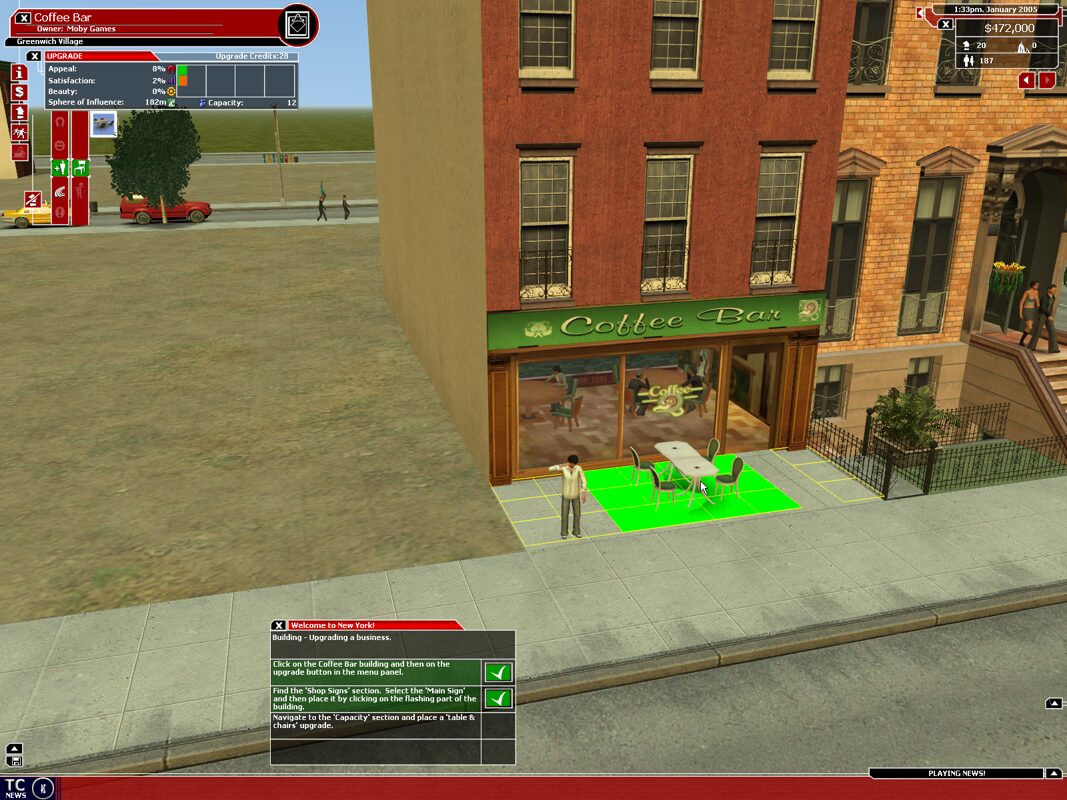



Reviews
There are no reviews yet.